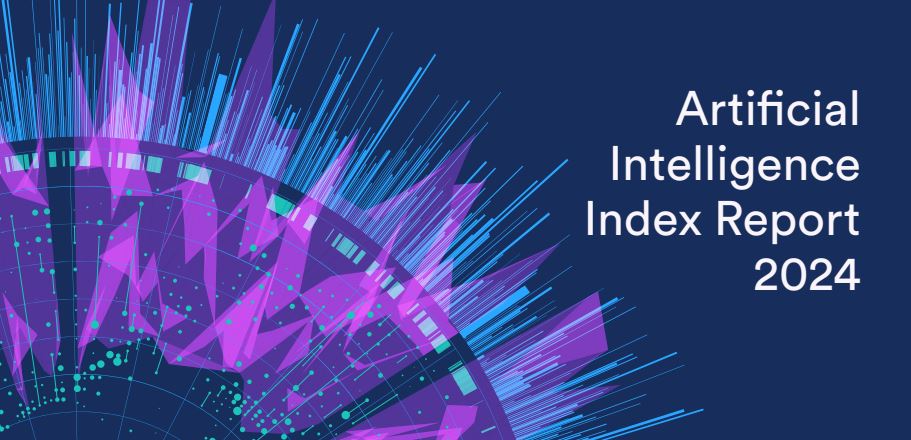
ΑΙhub.org
2024 AI Index report published

The AI Index Report aims to track, collate, distil, and visualise data related to artificial intelligence. Its mission is “to provide unbiased, rigorously vetted, broadly sourced data in order for policymakers, researchers, executives, journalists, and the general public to develop a more thorough and nuanced understanding of the complex field of AI”. The AI Index Report is published on a yearly basis, and the nine-chapter, 500-page 2024 edition has been released today. It investigates trends in research and development, technical performance, responsible AI, and policy and governance. Also considered are the implications of AI systems on the economy, and its use in science and medicine.
The chapters of the report, and some of the key findings within, are as follows:
- Research and development
- In 2023, a total of 149 foundation models were released, more than double the amount released in 2022. Of these newly released models, 65.7% were open-source, compared to only 44.4% in 2022 and 33.3% in 2021.
- The majority of notable AI models originated from US-based institutions, whereas China dominates AI patents.
- Technical performance
- Recent advancements have led to the development of strong multimodal models.
- AI models have reached performance saturation on established benchmarks prompting researchers to develop more challenging ones.
- Responsible AI
- There is a significant lack of standardization in responsible AI reporting complicating efforts to systematically compare the risks and limitations of top AI models.
- Political deepfakes are easy to generate and difficult to detect.
- Researchers discover more complex vulnerabilities in LLMs.
- Economy
- Despite a decline in overall AI private investment last year, funding for generative AI surged.
- The US pulled further ahead in private investment.
- There was a decline in AI-related positions in job listings in 2023.
- Science and medicine
- Researchers are using AI to assist in scientific research, for example in algorithmic sorting and materials discovery.
- In 2023, several significant medical systems were launched, including one which enhances pandemic prediction, and another which assists in AI-driven mutation classification.
- Education
- The number of new US and Canadian bachelor’s graduates continues to rise.
- Universities worldwide are offering more AI-focused degree programs.
- In the US and Canada, an increasing number of PhD students migrate to industry – now 71% – rather than taking a job in academia.
- Policy and governance
- The European Union reached a deal on the terms of the AI Act, a landmark piece of legislation enacted in 2024.
- President Biden signed an Executive Order on AI.
- Diversity
- In the US and Canada, white students continue to be the most represented ethnicity among new graduates, although the representation from other ethnic groups continues to grow.
- Substantial gender gaps persist in European informatics, computer science, and information technology university courses.
- Public opinion
- People across the globe are more cognizant, and more nervous, about AI’s impact.
- In an Ipsos survey, only 37% of respondents feel AI will improve their job. Only 34% anticipate AI technologies will boost the economy, and 32% believe they will enhance the job market.
Read the report in full
PDF of the report
AI Index Report webpage










